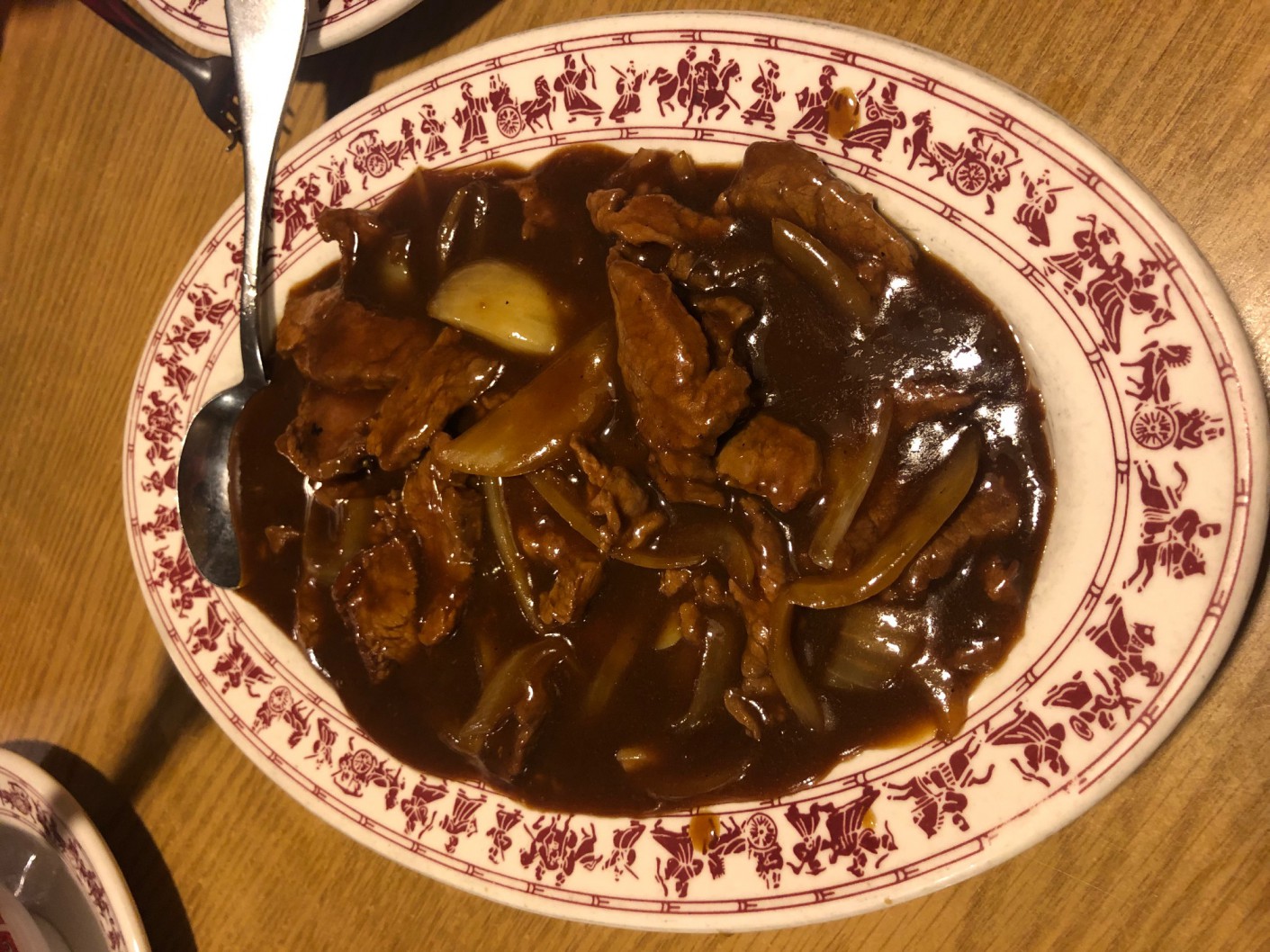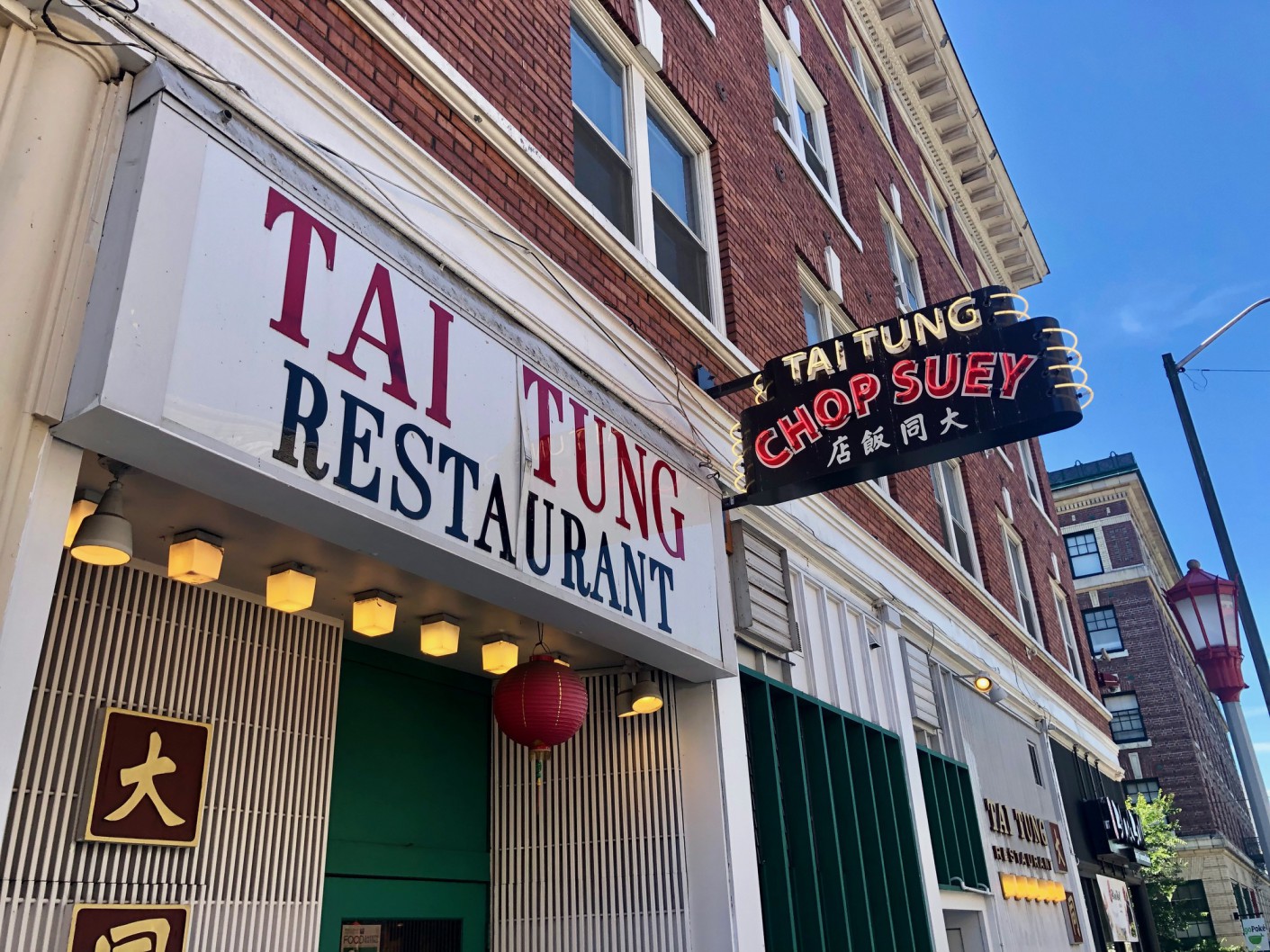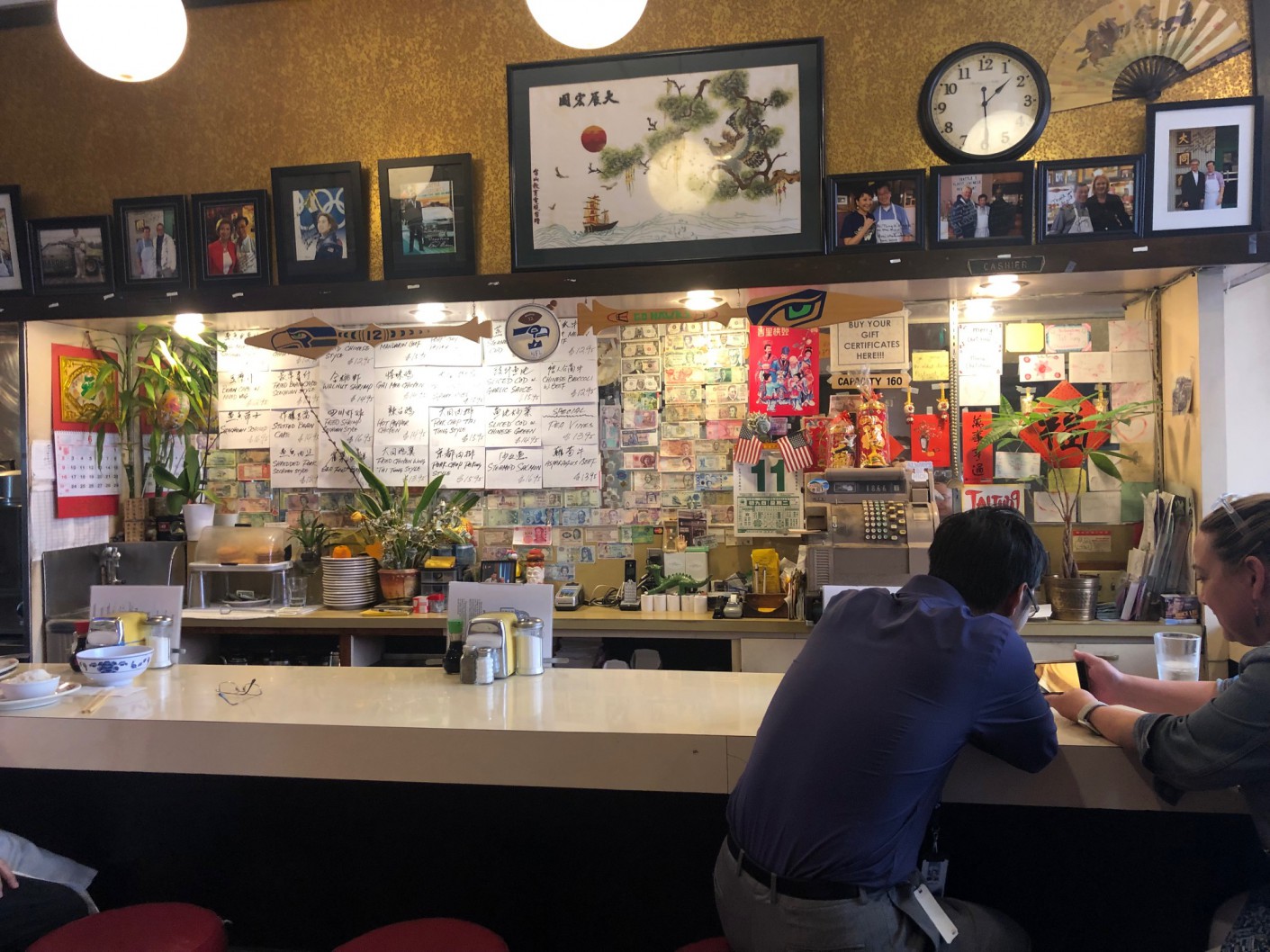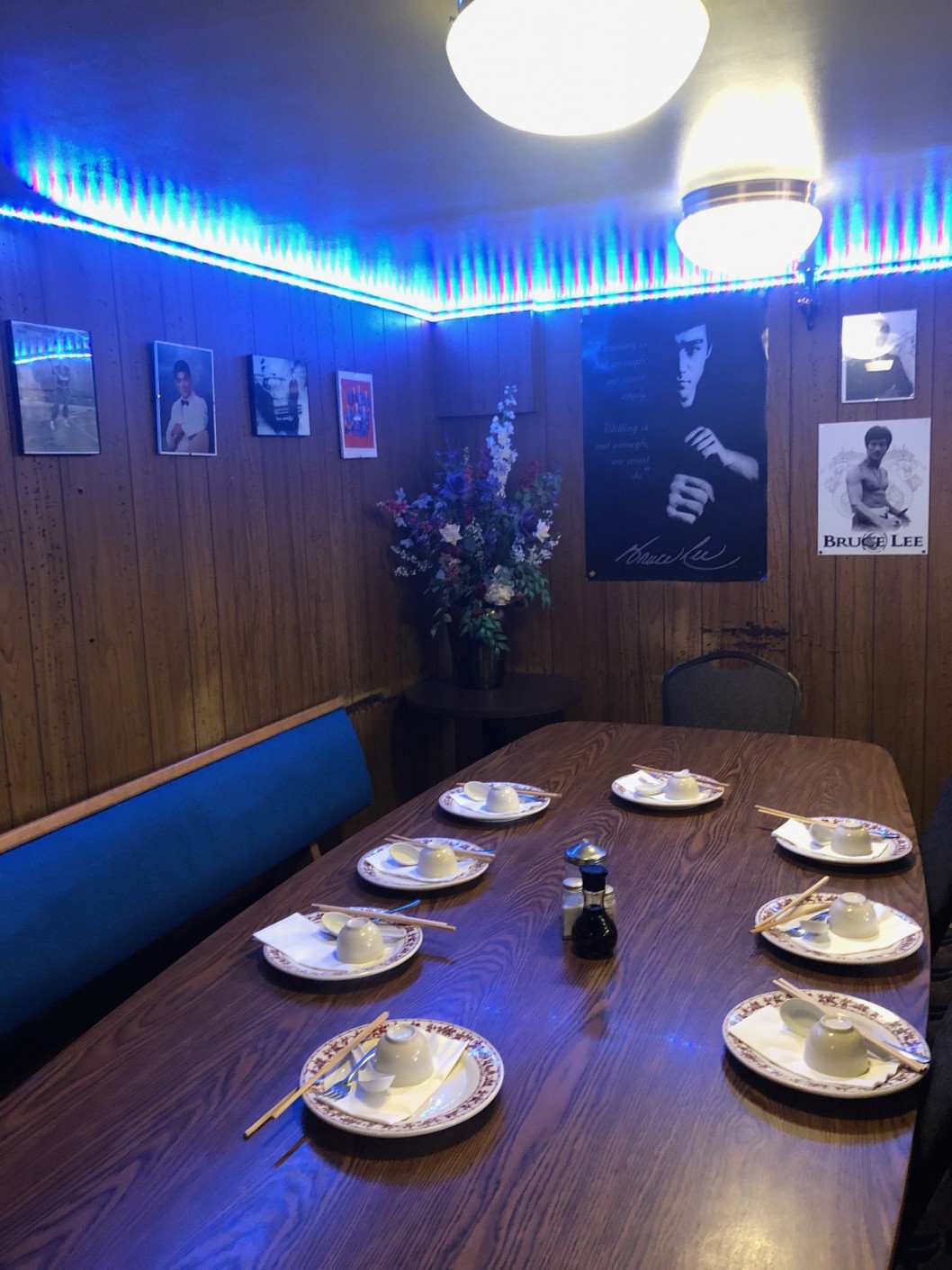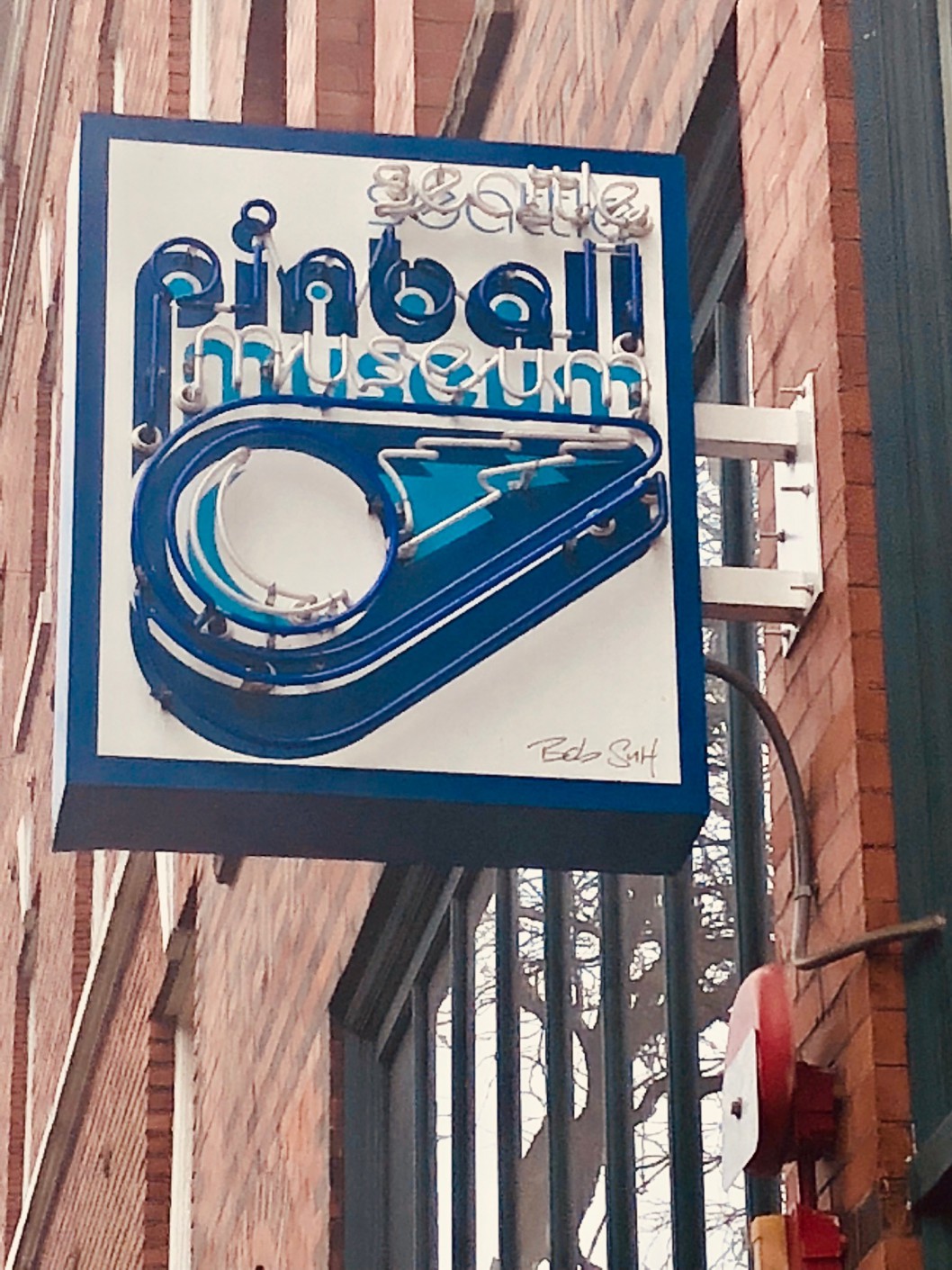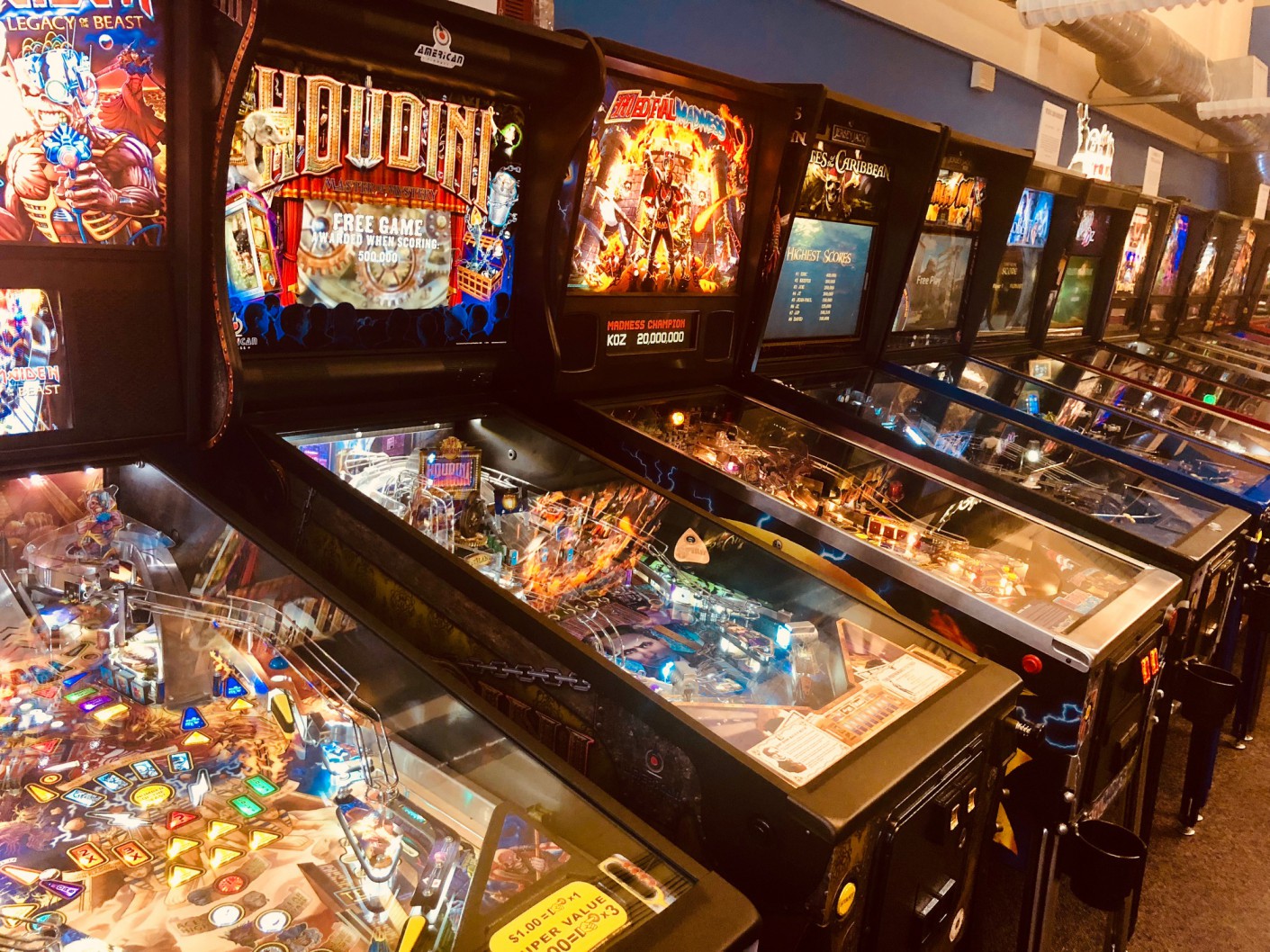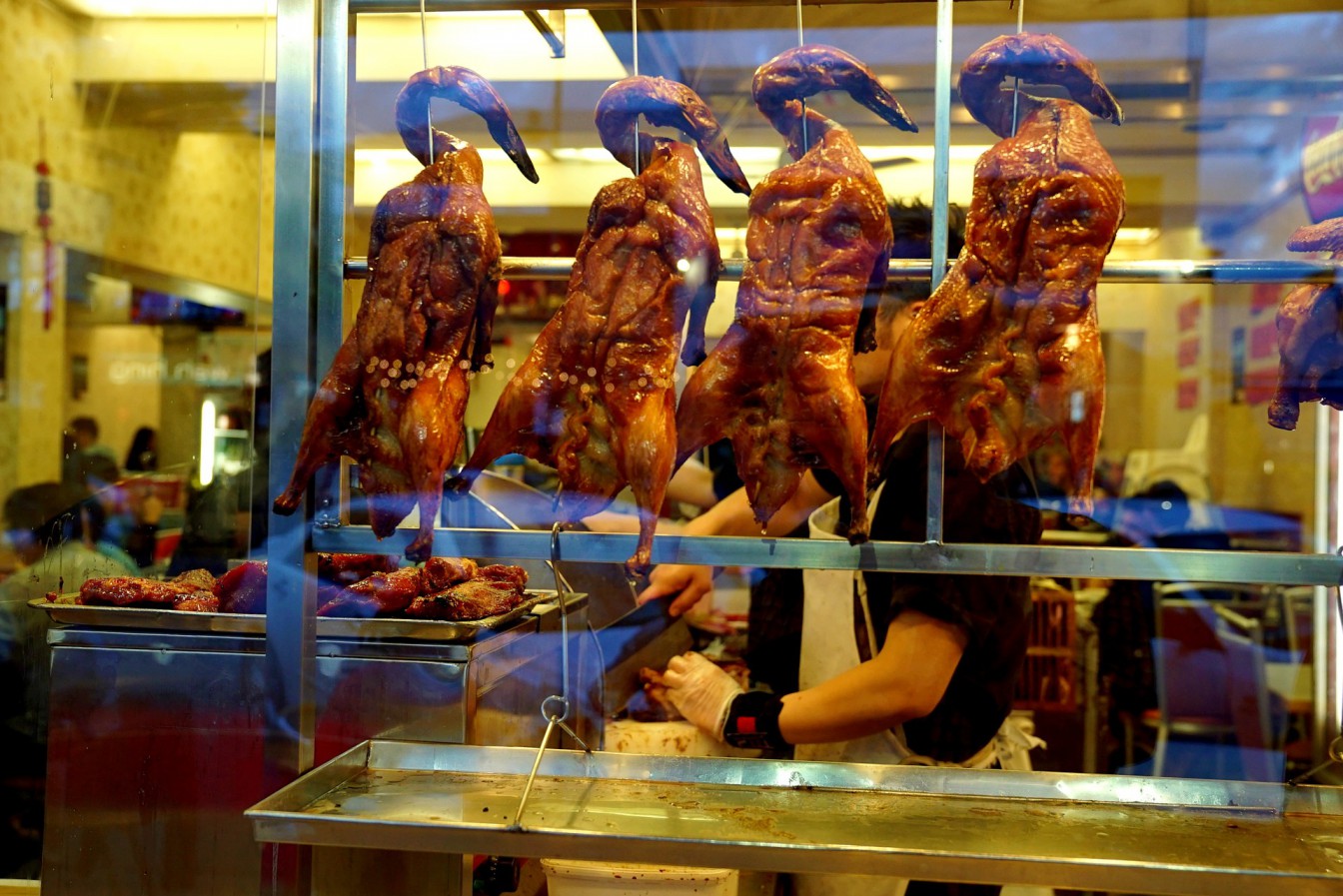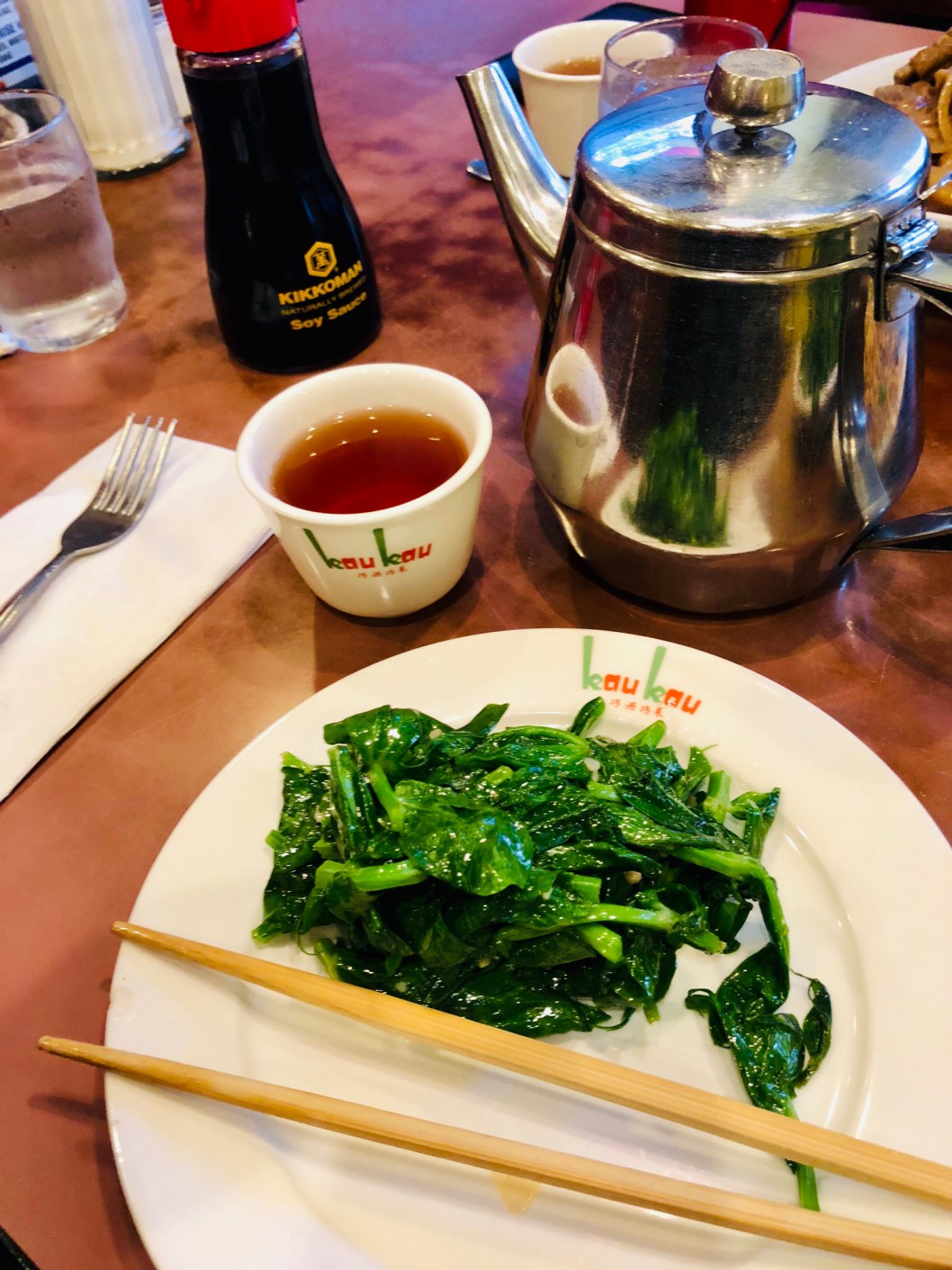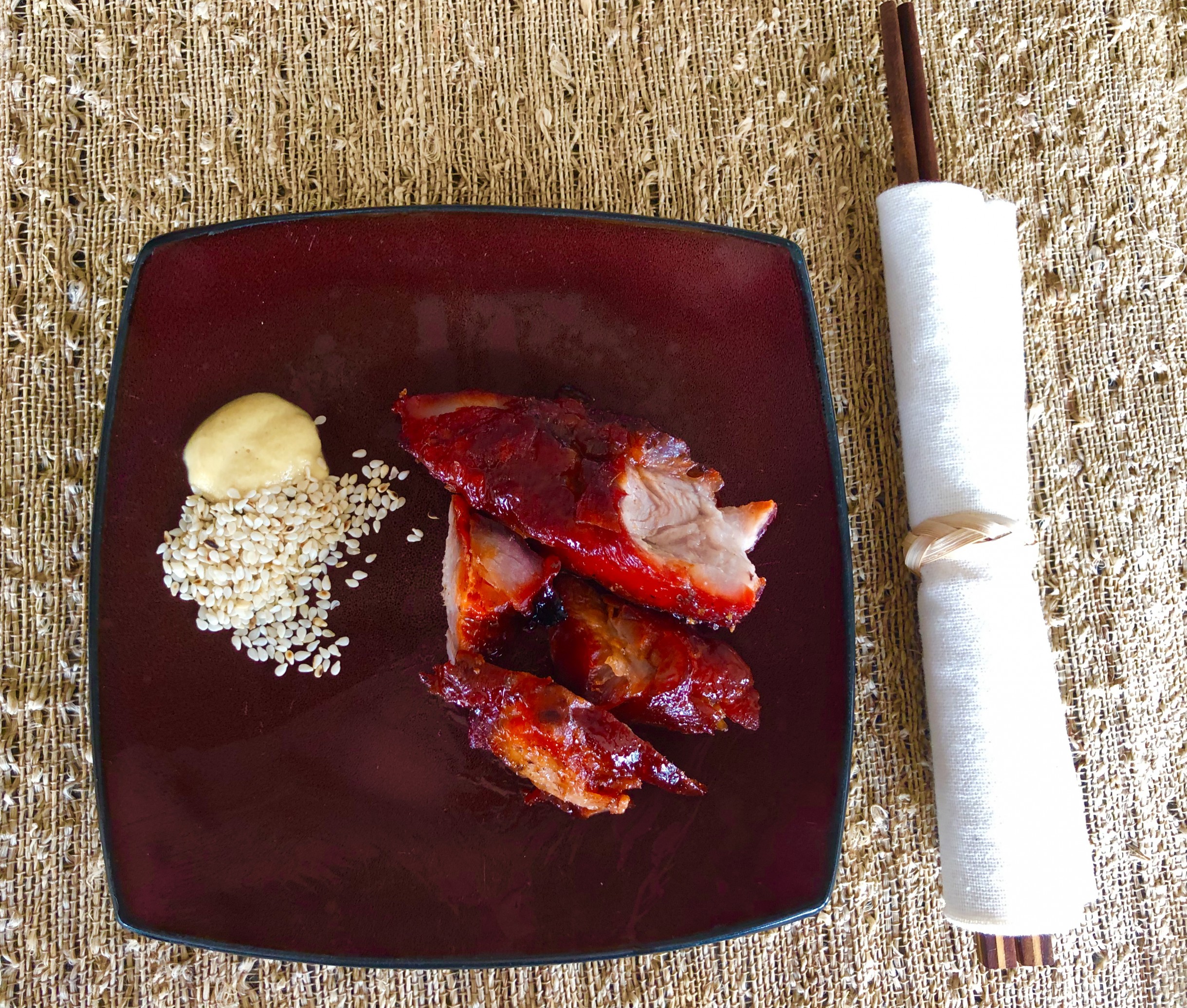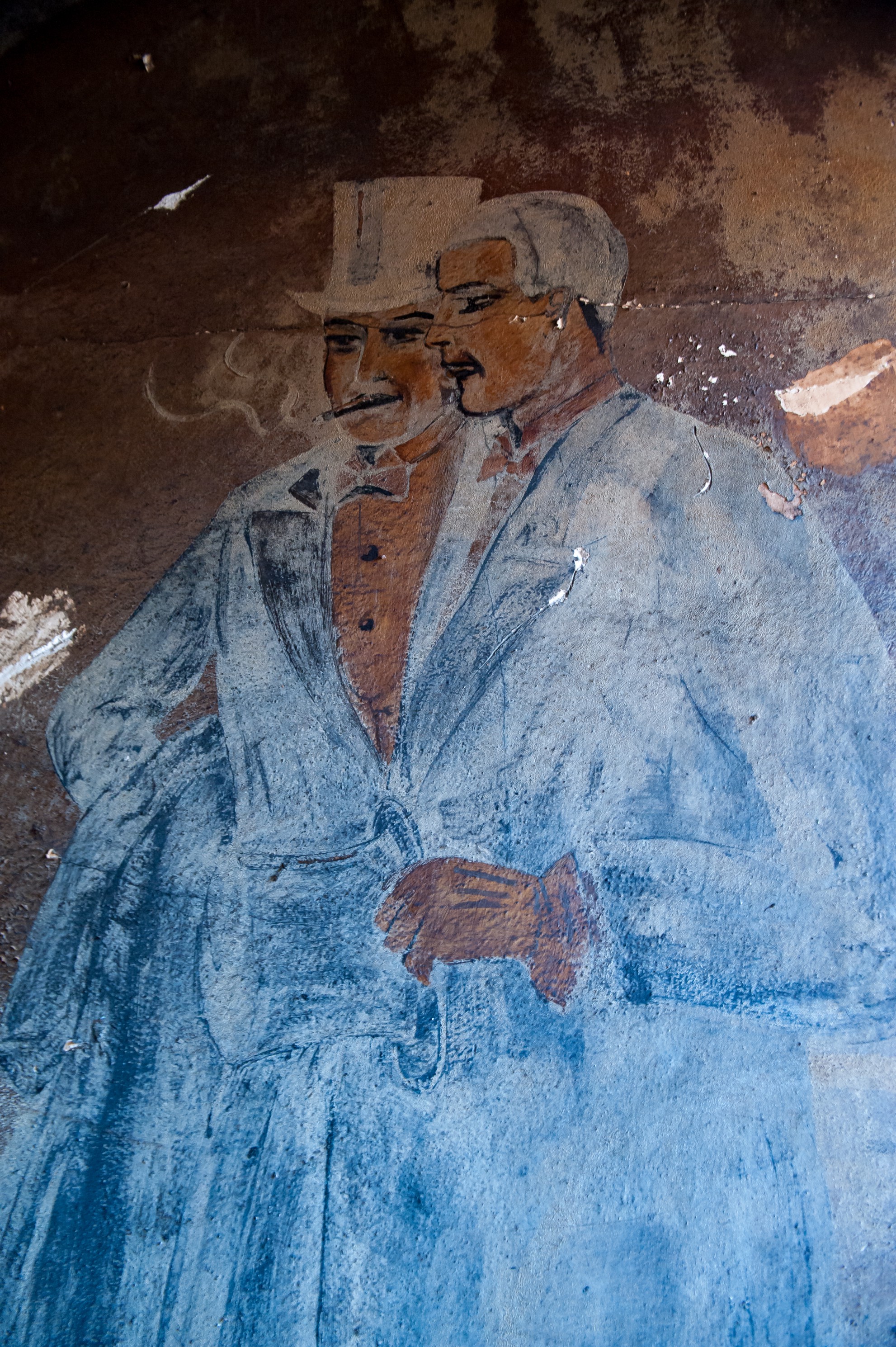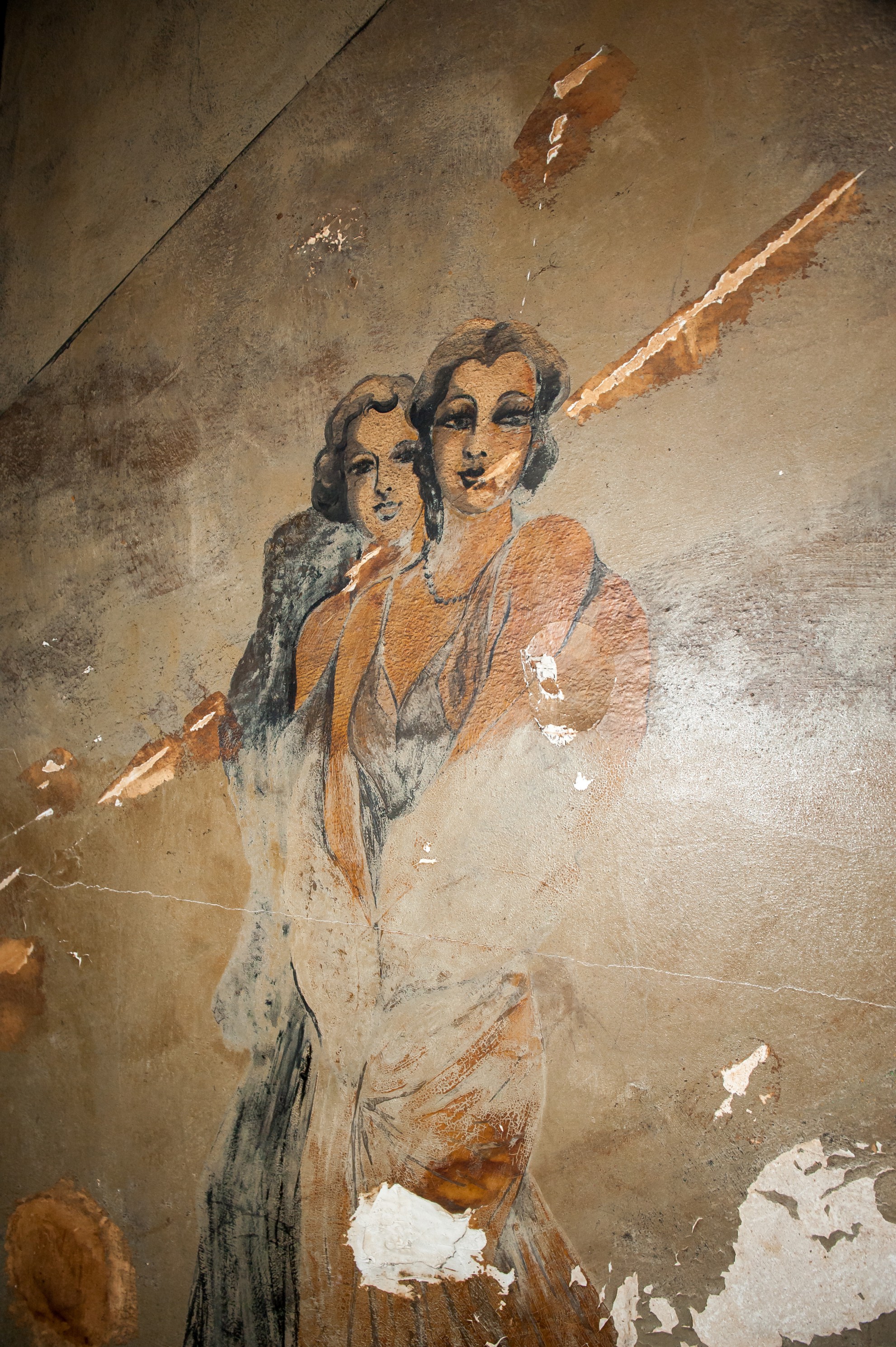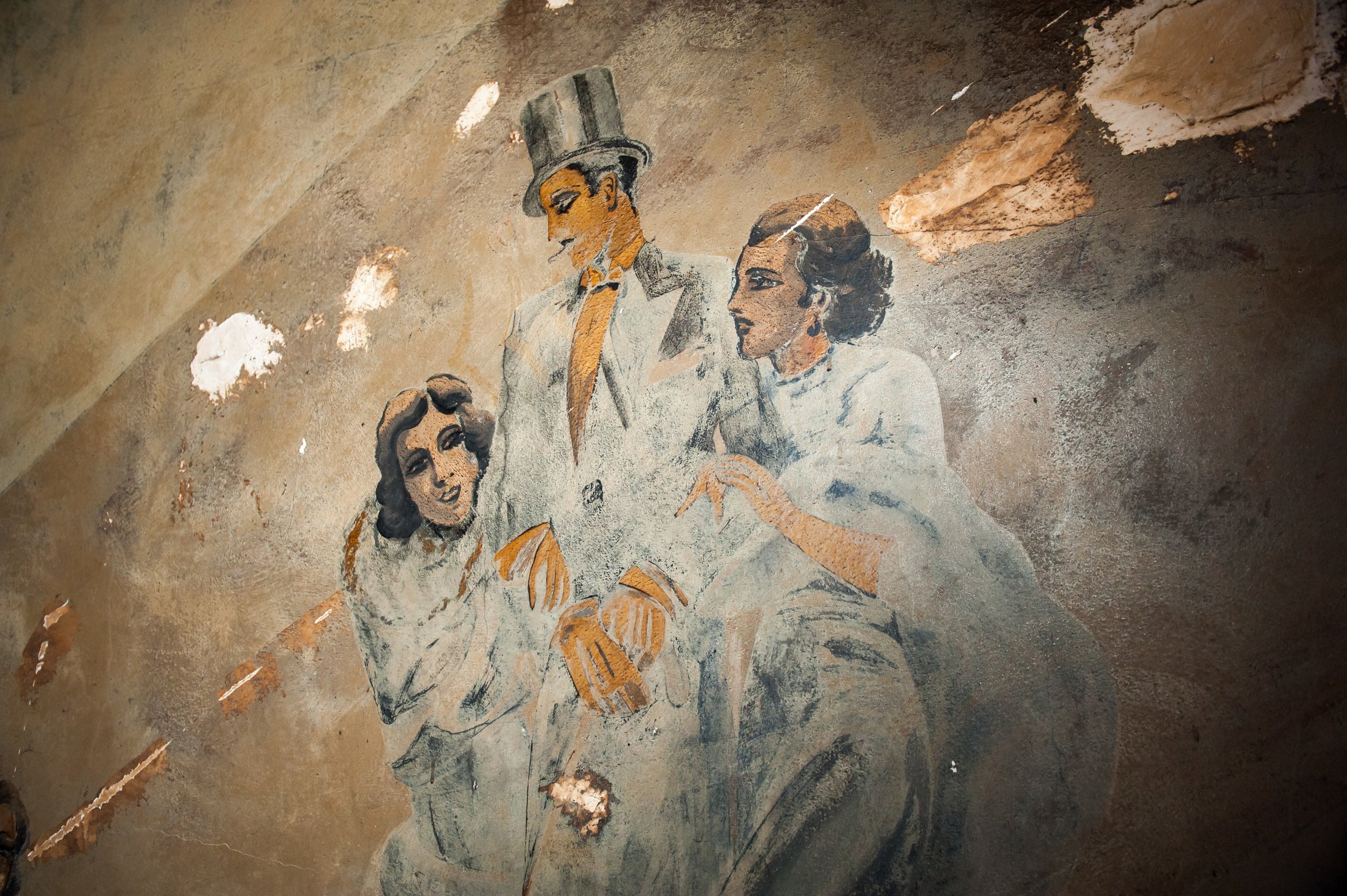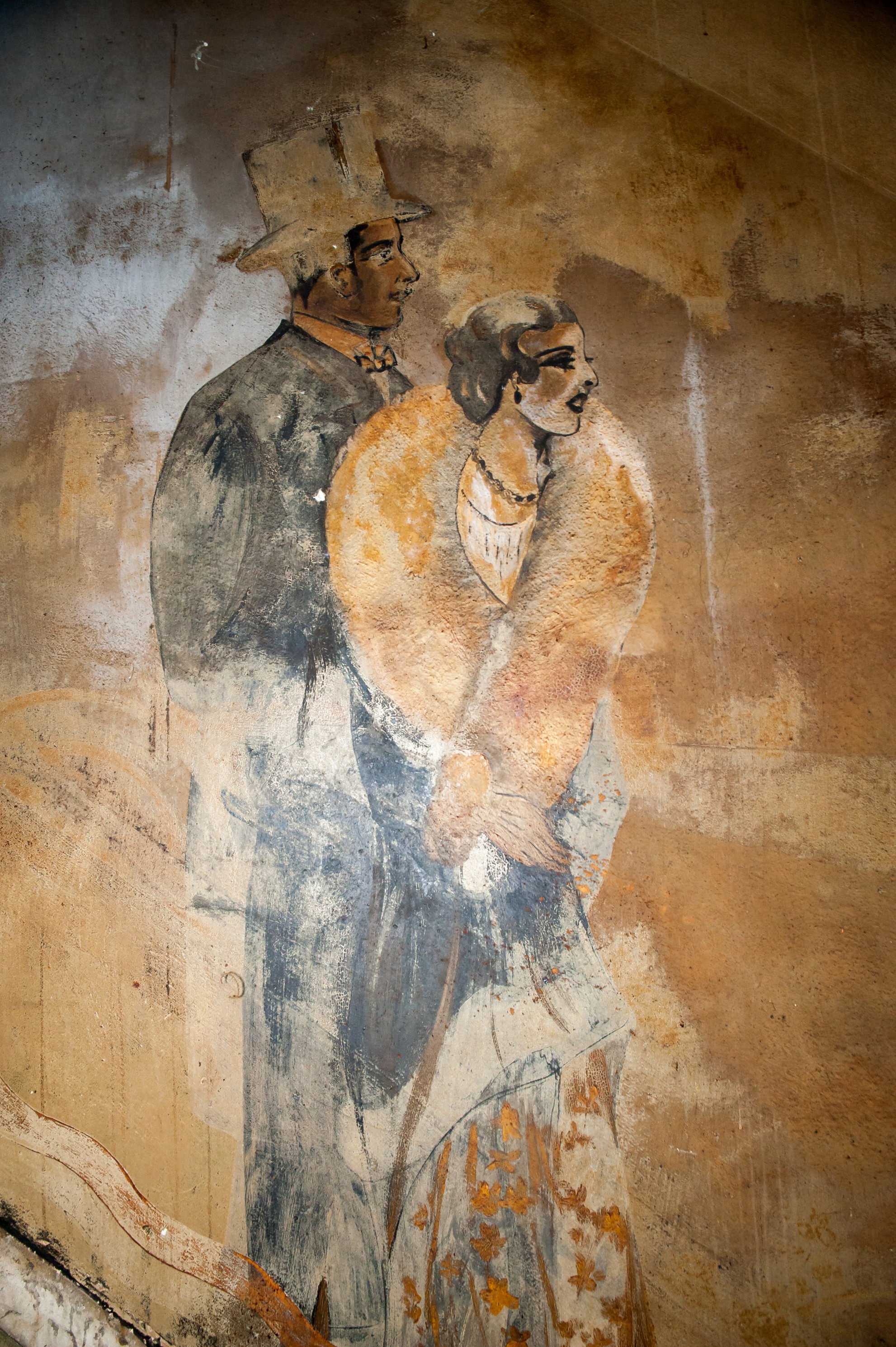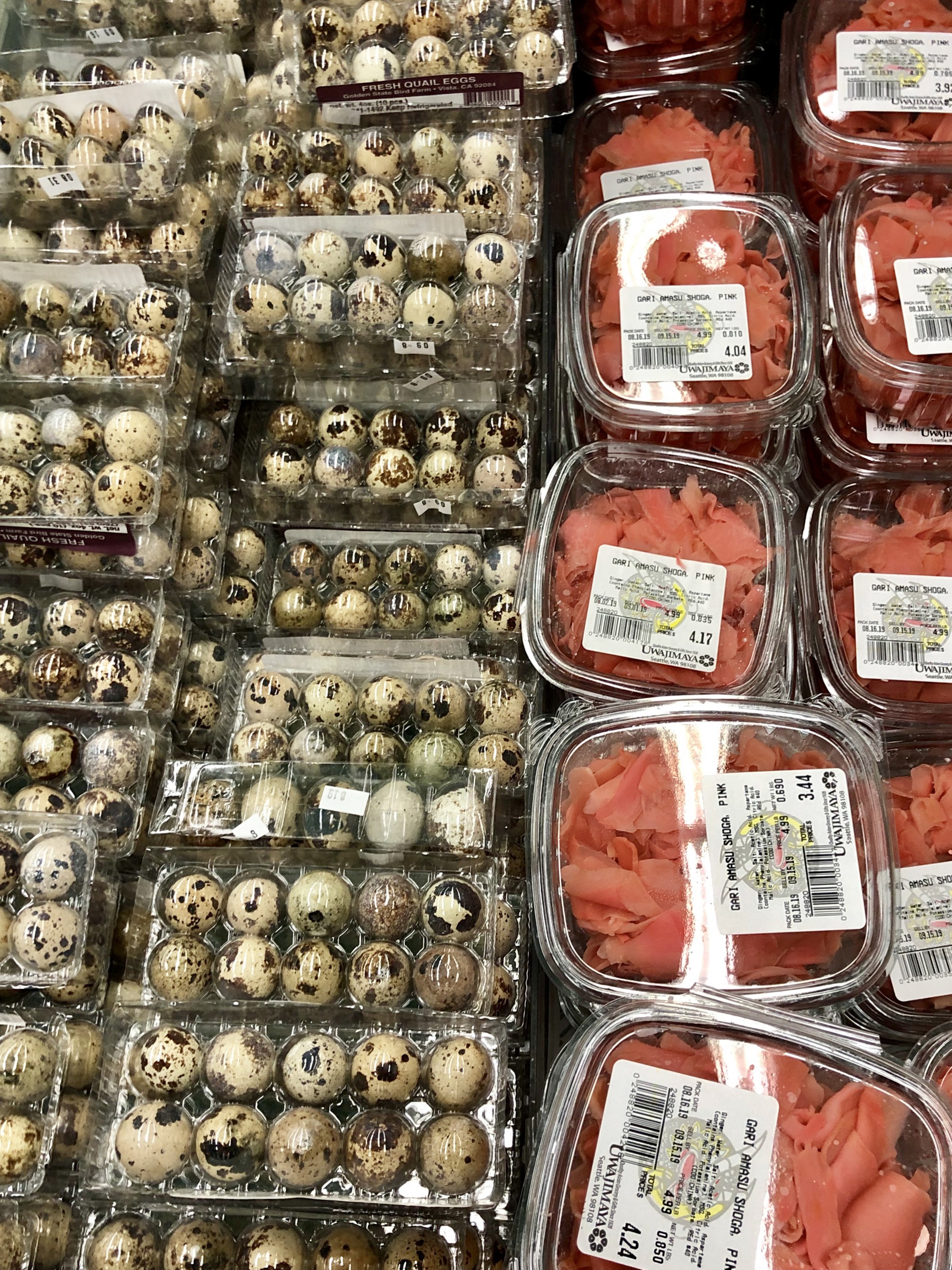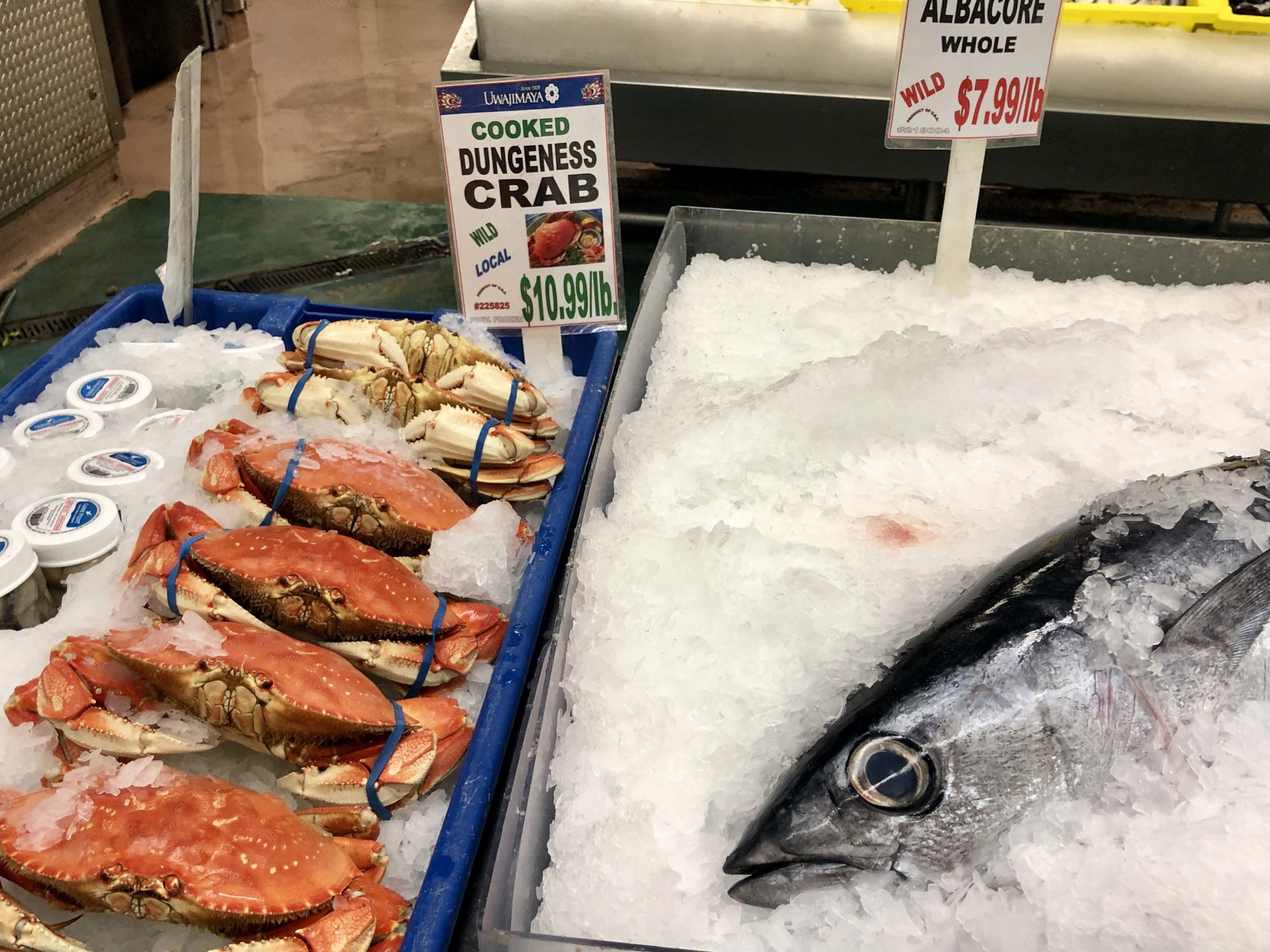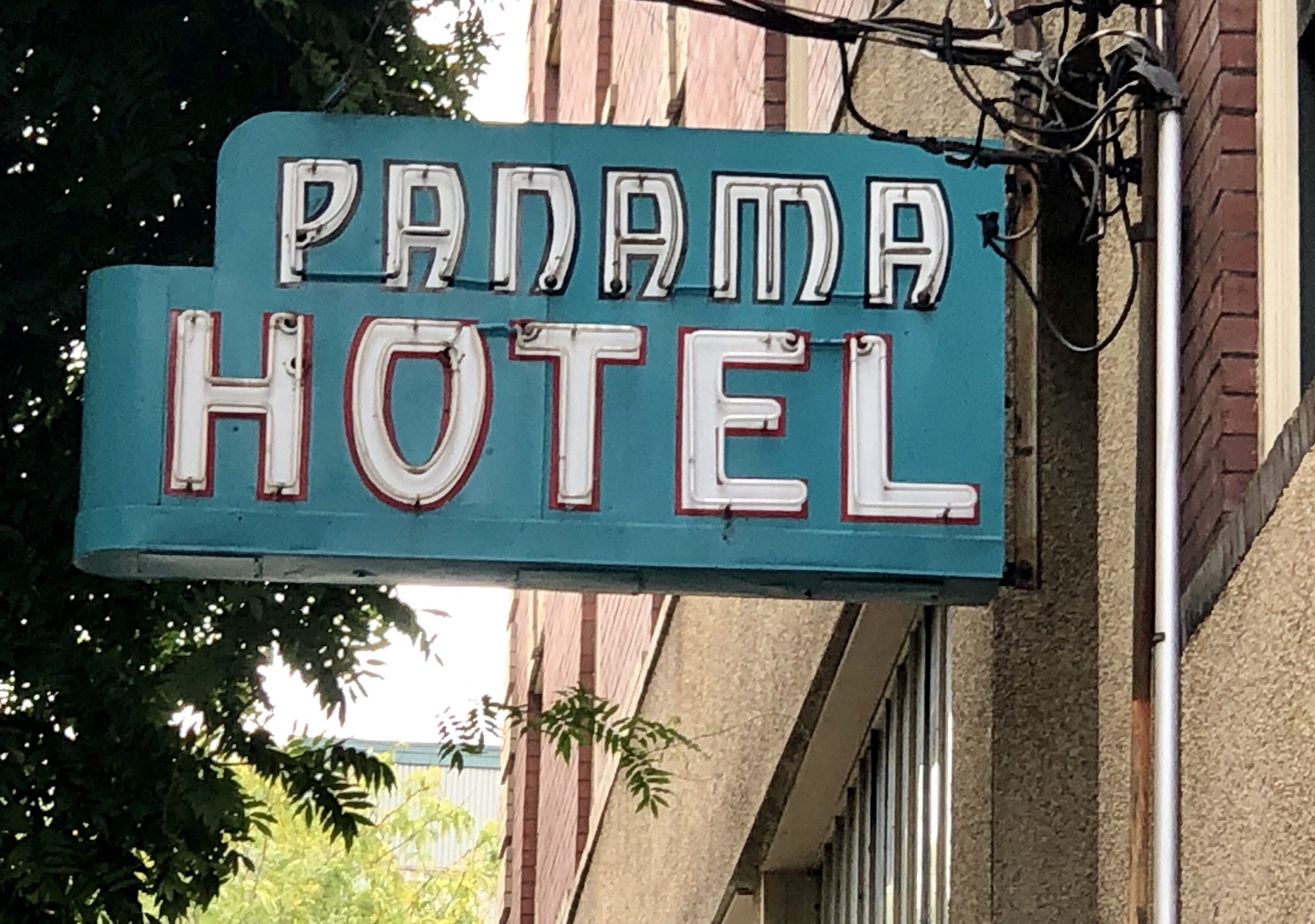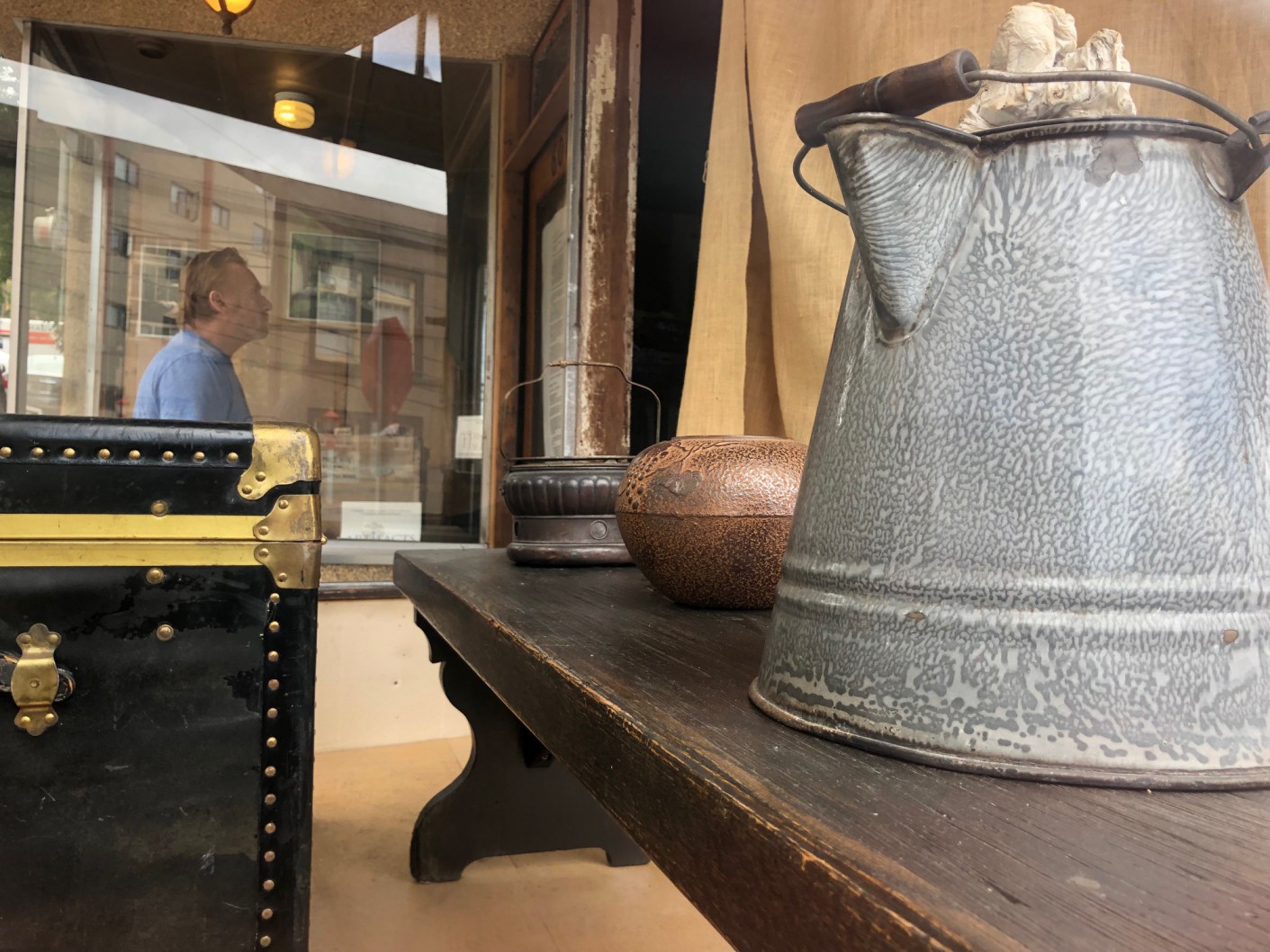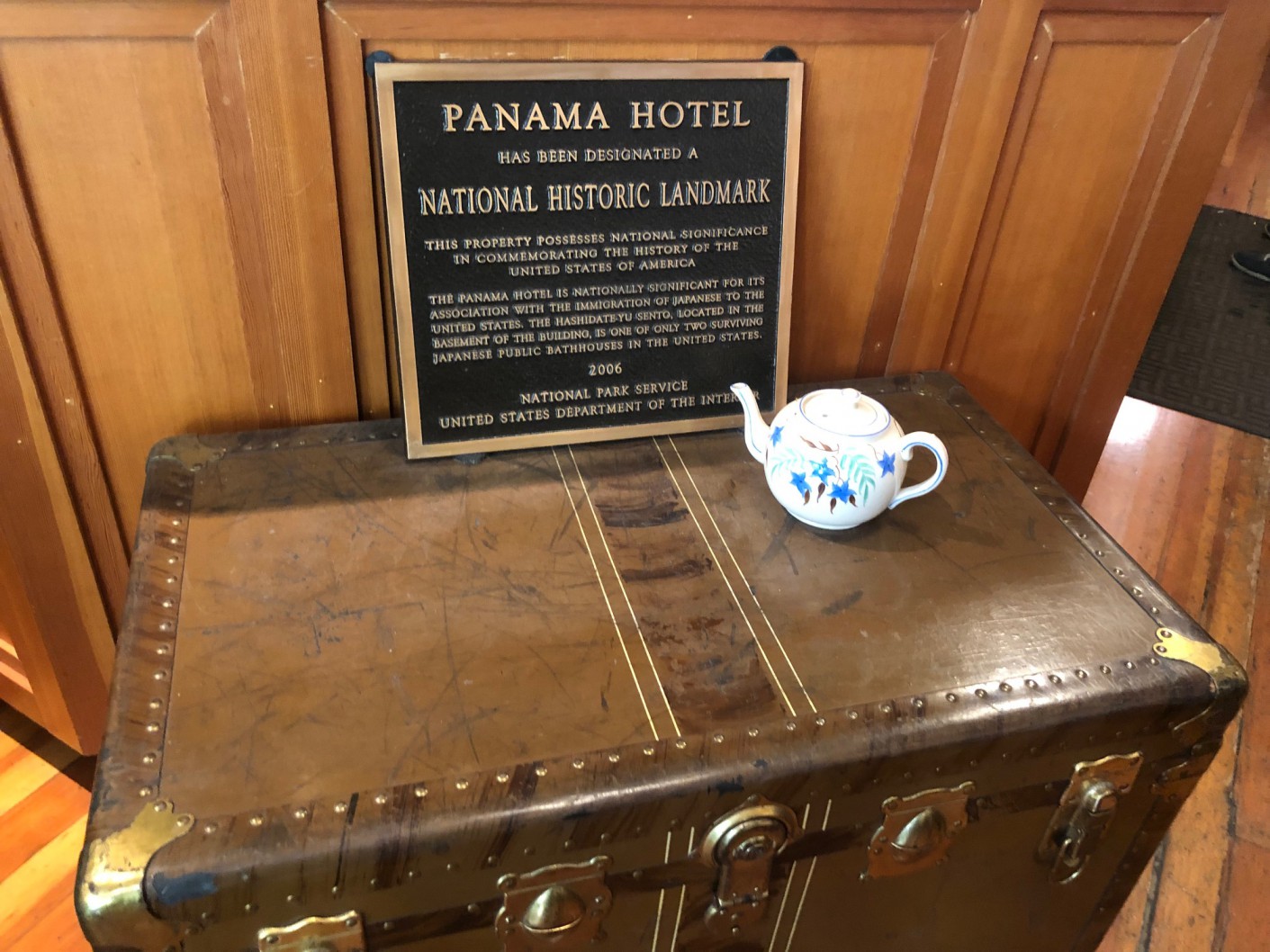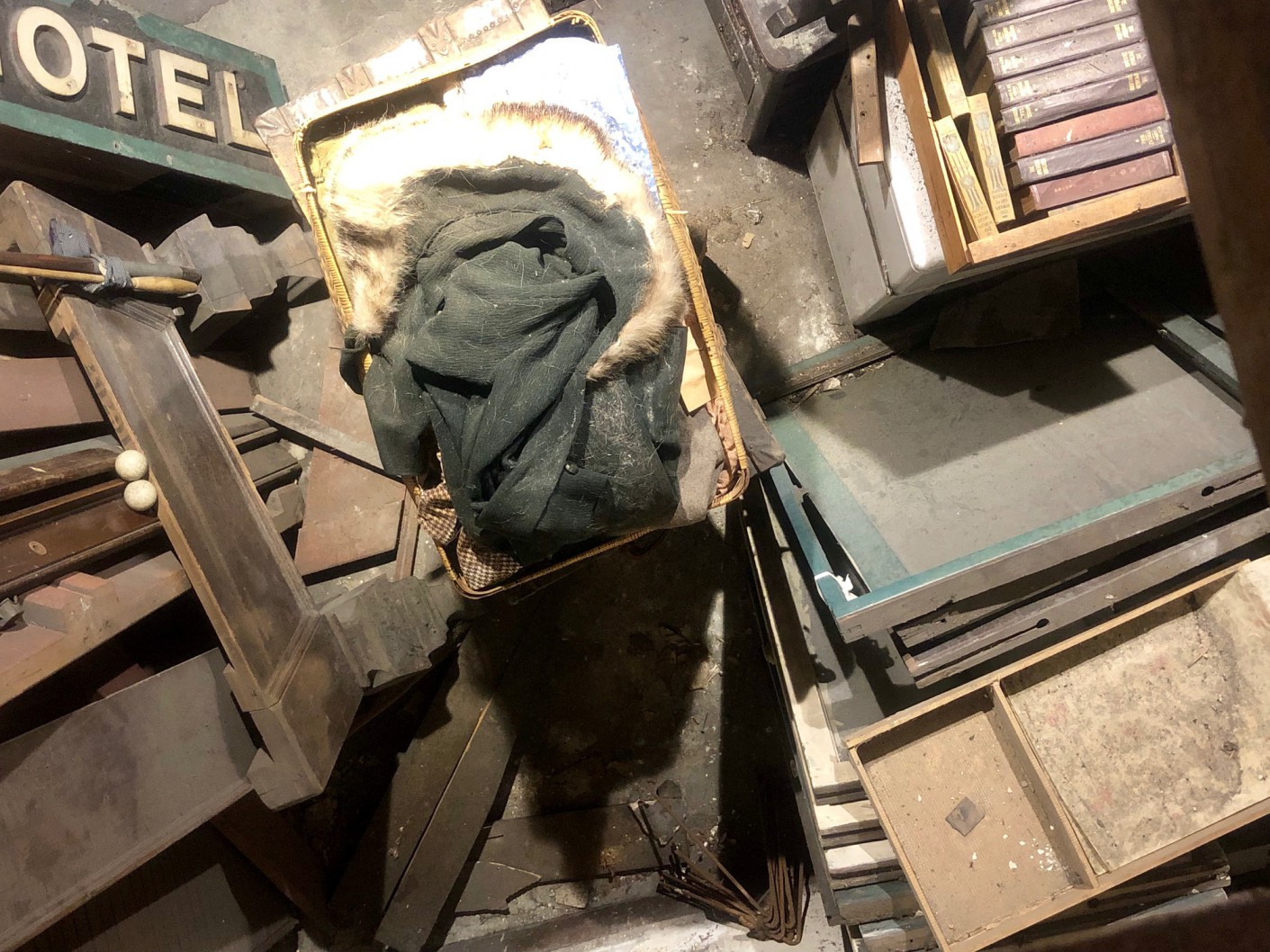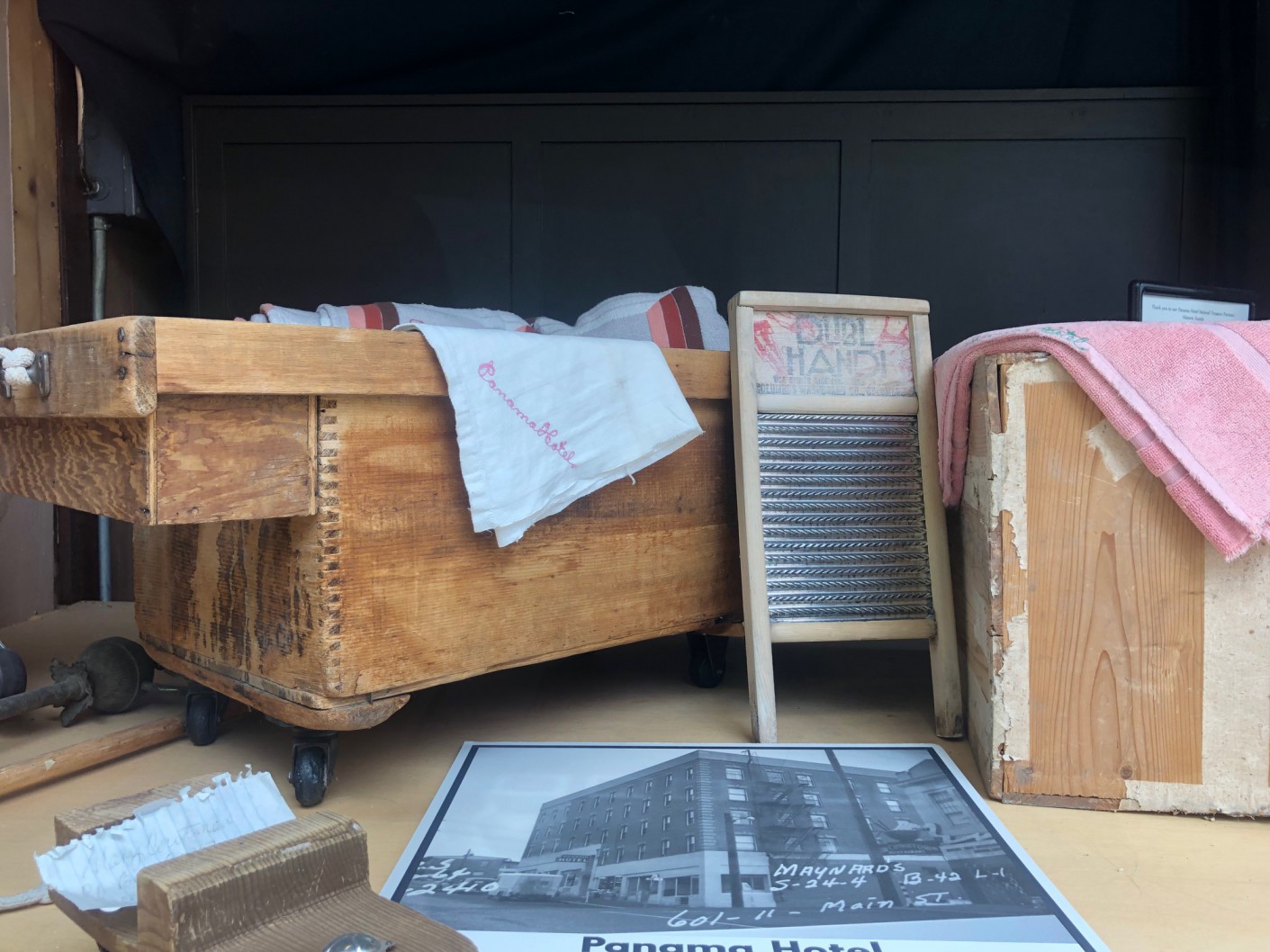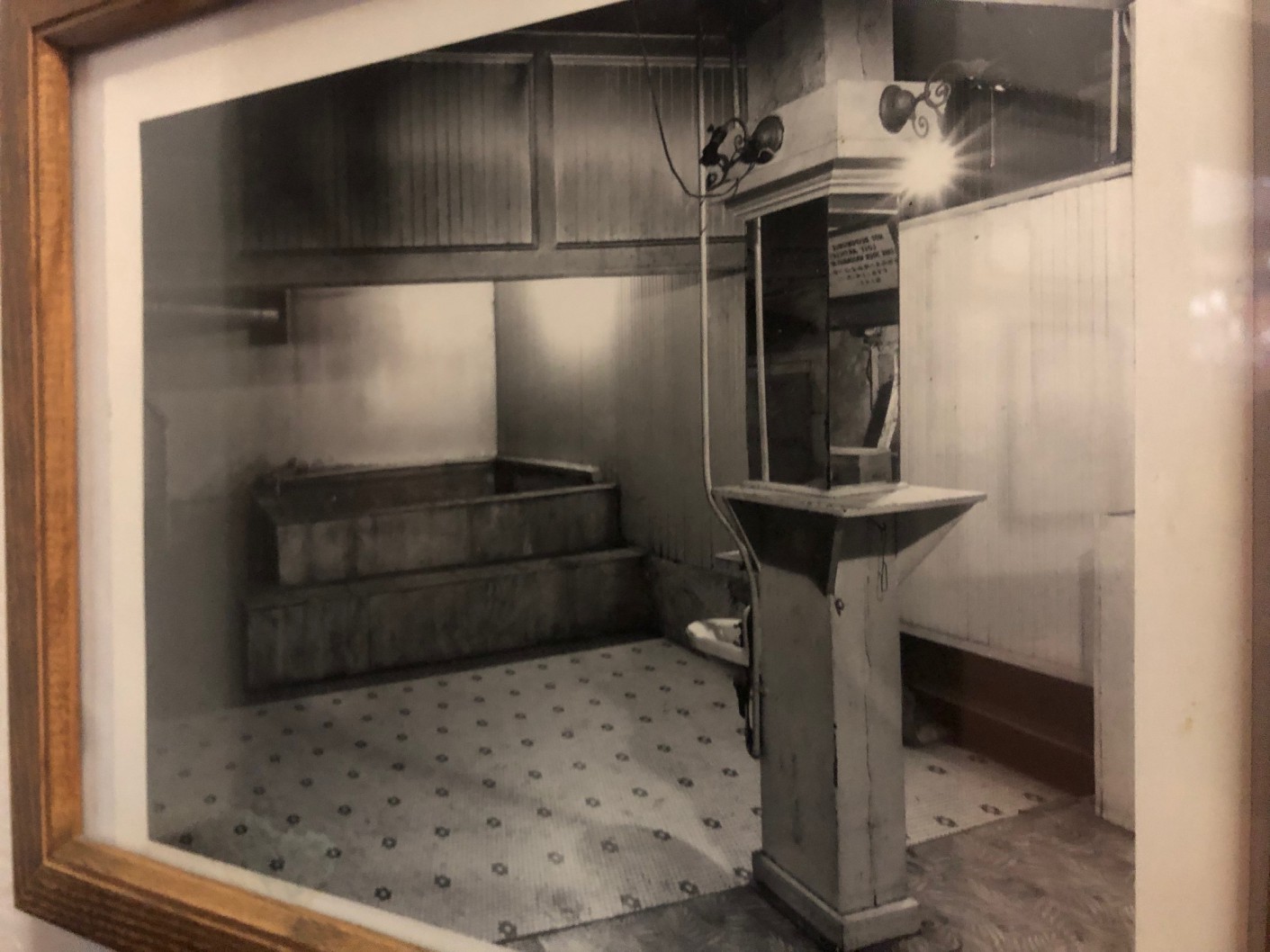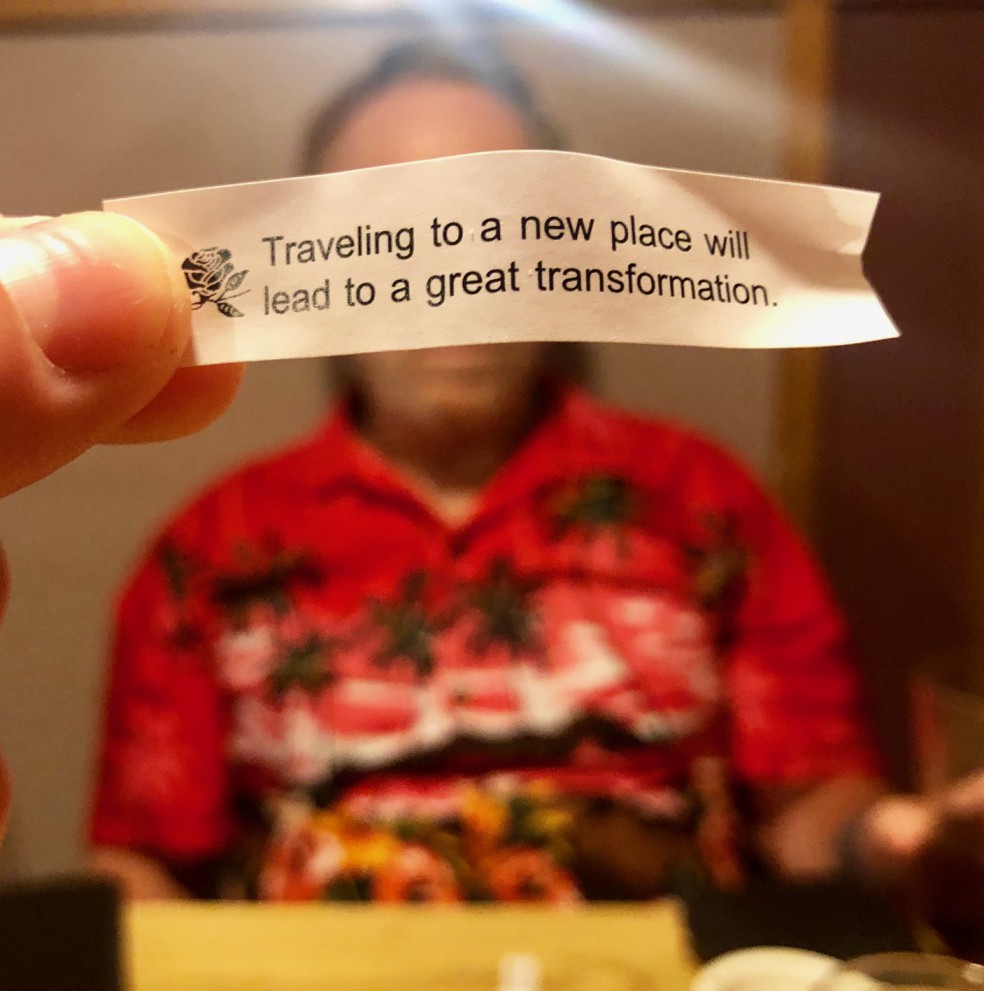Dim Sum and Murder in Seattle’s Chinatown-International District
I’ll have what Bruce is having
A Seattle insider tipped us off to a special restaurant called Tai Tung. Opening in 1935, it’s Seattle’s oldest Chinese restaurant. When you walk through the entrance’s 80 year old saloon doors, Tai Tung has the feel of a 1950s drugstore diner. I can think of many reasons to eat here, but we came for the oyster sauce beef. This was Bruce Lee’s favorite restaurant and that was his favorite dish. Owner Harry Chan was his buddy and will let you sit at Bruce’s table if you ask nicely. The oyster sauce beef is not going to win any beauty contests, but it we liked it.
Seattle loves pinball
Check out Pinball Maps (did you know this was a thing?) and you’ll find 400 machines around the Emerald City. At the Pinball Museum, 50 machines are part of the owner’s private collection. Once you’ve paid an entrance fee ($18/adult, $15/child), all games are free play. It must be a generational thing because Danny won every game. (Had it been Super Mario Bros, I would have crushed it.)
Get your ducks in a row
Kau Kau Barbecue has been a popular local take-out spot for nearly 30 years. An order of the sticky red barbecue pork will run you around $5 and includes small tubs of hot mustard and toasted sesame seeds. So simple yet so delicious.
Big trouble in little China
In the ‘20s and ‘30s the Louisa Hotel was a deco flapper hotspot for a fun-loving crowd complete with a speakeasy called the Bucket of Blood. It wasn’t until last year when wallpaper was peeled away that the story unfolded. Beautiful murals leading to the illicit basement club tell a tale of debauchery. Jimi Hendrix’s mom was a server here and even sang on occasion. When the club was raided in ‘31, the music was so loud that patrons didn’t even notice until the pianist was cuffed and dragged off stage. But it’s the macabre history that lingers. The Wah Mee Club, once located in the Louisa Hotel, was the site of Seattle’s largest mass murder in 1983. In a robbery attempt, a man with a gambling debt and a couple of cronies hogtied and shot 14 people. One survived and managed to identify the men. This particular spot mysteriously burned down a few years ago. The rest of the hotel is now affordable housing.
Not your mom’s super market
Uwajimaya is the most exciting grocery store I’ve ever seen. Feast your eyes on live geoducks native to the Pacific Northwest, trays of fresh sea urchin and quail eggs, cuts of sashimi to make sushi at home, and buckets of un-shucked oysters. You’ll find every variety of soy sauce known to man. There’s even an entire aisle dedicated to ramen. Even if you don’t buy anything (yeah right), it’s quite the sight.
A dark history
An important story lives on in the Panama Hotel. A glass pane in the floor of the hotel’s tea shop is a window into a room below housing personal items left behind by “all persons of Japanese ancestry, both alien and non-alien” who were forced to live in internment camps during WWII. Books, furniture, clothing, kitchen utensils, a bottle of wine. Why they didn’t come back for these items they held so dear? Maybe they just never returned to the area or were disenchanted with the American government. Maybe they died. Signs in front of the hotel display original documents notifying residents of the evacuation. Reading them made my heart sink.
The Panama Hotel is fully functional, much unchanged from 1910, ie don’t bank on wifi, air conditioning, tv, elevators, or a private bathroom. There’s a handful of underwhelming reviews online, but I don’t think these guests knew what they were getting. It’s an opportunity to step back in time, to honor and understand the disgraceful history of the internment camps and the unfair treatment of Japanese Americans. And contrary to what many of the negative reviews report, you can tour the full collection of artifacts and view the locker room and last remaining Japanese bathhouse in the country; You just have to plan ahead. You’ll need a group of ten. It costs $20/each and includes a cup of tea. Email panamahotelseattletours@gmail.com to arrange. Seattle’s oldest Japanese restaurant, Maneki circa 1904, is next door.
There’s a lot more than bubble tea and dumplings…
In a city not known for its diversity, Seattle’s Chinatown-International District is a lively hub full of history and culture just 5 minutes from from the glass towers of downtown.

